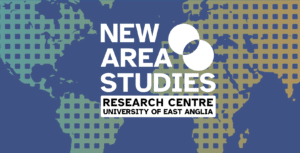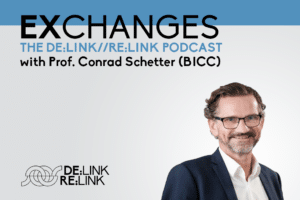News

Upcoming Keynote: New Trends in Area Studies
On 6 March 2026, Claudia Derichs will give a keynote speech at a one-day symposium at the University of East Anglia, UK. The lecture will trace the development of Area Studies and explore the principle of “no research about you without you”.

Next Brown Bag Talk: The BRI and the Evolving Role of Multilateral Development Banks
On 12 March 2026, Valentin Krüsmann (ZOiS) will give a lunchtime talk exploring the key part multilateral development banks play within the BRI. Register now to take part online.

Inaugural Science Silk Road Seminar: Commercial Aerospace in China
With increasingly visible launches and tests, commercial space travel in China attracted attention from international observers. In this seminar, Lucie Sénéchal-Perrouault outlines the current dynamics and their potential influence on the BRI.

First episode of our new podcast now online!
The De:link//Re:link podcast explores the backgrounds of our researchers: How did they choose their themes? What drives their work? Which challenges have they experienced? In the first episode, we chat to Conrad Schetter.

Studying Global China Workshop
On 16–17 February 2026, the BCCN’s third Studying Global China Workshop will take place at Humboldt-Universität zu Berlin. The event is open to PhD students, postdocs, and other interested scholars.

New Advisory Board Member: Han Cheng
We are proud to announce that Dr. Han Cheng (MPIWG) is now part of our International Advisory Board.
